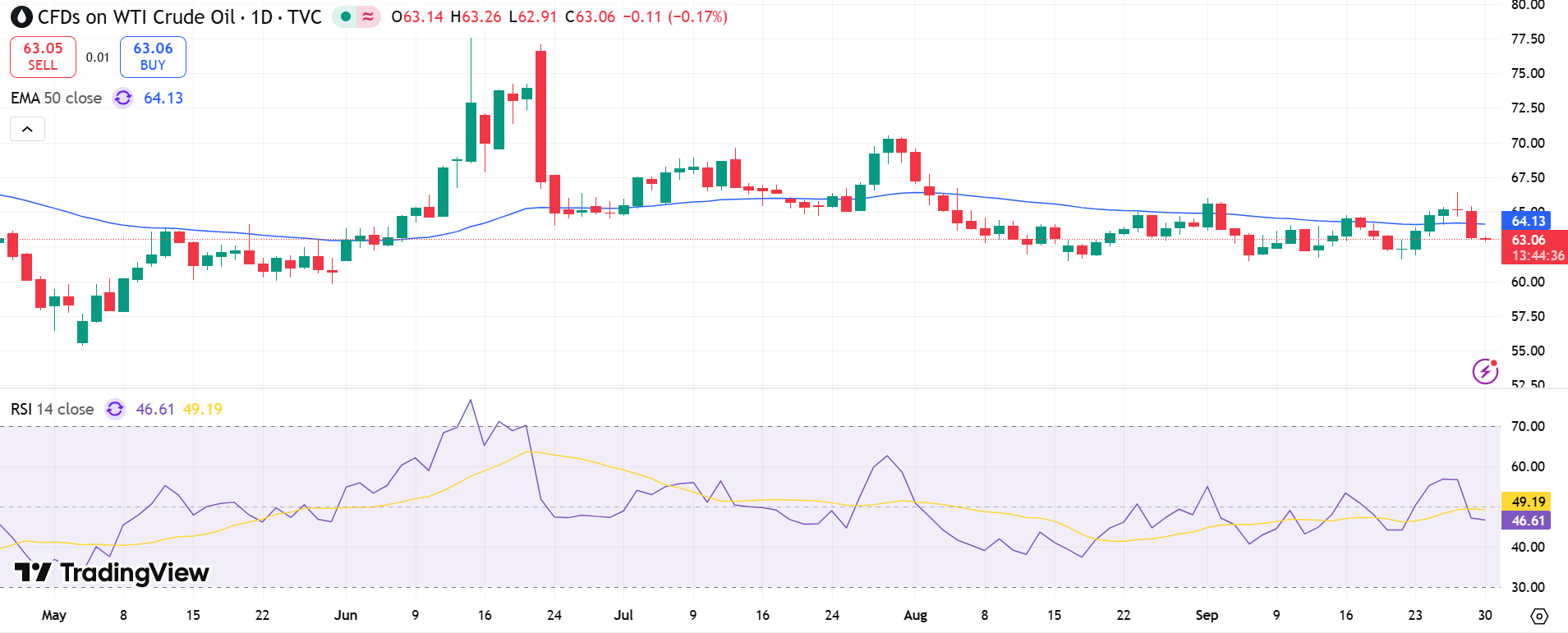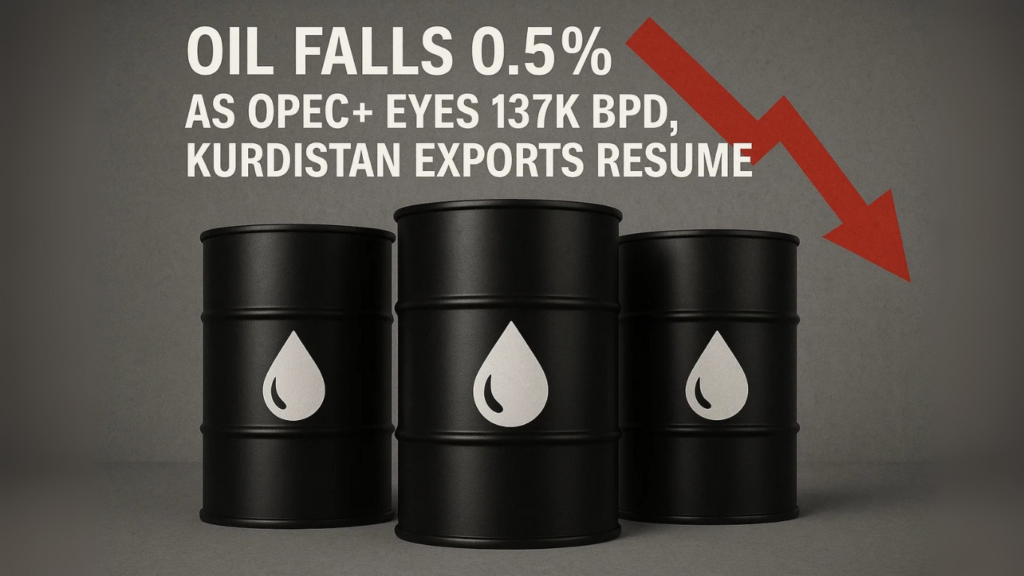Crude prices slipped further on Tuesday, with markets bracing for a potential OPEC+ production increase and the resumption of exports from Iraq’s Kurdistan region. These developments heightened concerns of a near-term supply surplus, adding pressure to already fragile energy markets.
Brent crude futures for November delivery—set to expire Tuesday—dropped 0.4% to $67.69 per barrel by 06:30 GMT. The December contract, now more actively traded, fell 0.5% to $66.76. Meanwhile, U.S. West Texas Intermediate (WTI) slid 0.5% to $63.16.
The declines extend Monday’s steep selloff, when Brent and WTI both tumbled more than 3%, marking their sharpest daily losses since August 1.
OPEC+ Meeting to Add Supply
The Organization of the Petroleum Exporting Countries and allies including Russia, collectively known as OPEC+, will meet Sunday to finalize production targets. According to three sources familiar with the talks, the group is expected to approve an output increase of at least 137,000 barrels per day in November.
While OPEC+ production has lagged quotas this year, the signal of additional supply unsettled traders.
Analysts note:
- Iraq’s Kurdistan region restarted pipeline exports to Turkey on Saturday, the first flows in 2.5 years after an interim agreement ended a long-standing dispute.
- Market sentiment remains cautious, with drone attacks on Russian refineries offset by oversupply risks.
- The prospect of further OPEC+ production is weighing on crude benchmarks despite structural shortfalls in compliance.
“Although OPEC+ is already under its quota, the market does not like the fact that more barrels are incoming,” said Marex analyst Ed Meir.
Demand Concerns Add Pressure
Beyond supply dynamics, weak demand expectations continue to pressure oil. Analysts at ANZ noted that the potential U.S. government shutdown is raising additional uncertainty, with investors worried about reduced energy consumption if growth slows.

Shutdown risks could also delay key economic indicators, including the nonfarm payrolls report due Friday, complicating policymaking at the Federal Reserve.
Adding to the geopolitical backdrop, U.S. President Donald Trump secured Israeli Prime Minister Benjamin Netanyahu’s backing for a U.S.-led Gaza peace proposal, though uncertainty persists around Hamas’s response.
With oil caught between geopolitical risks and structural oversupply, traders remain wary of further volatility ahead of the OPEC+ decision.


